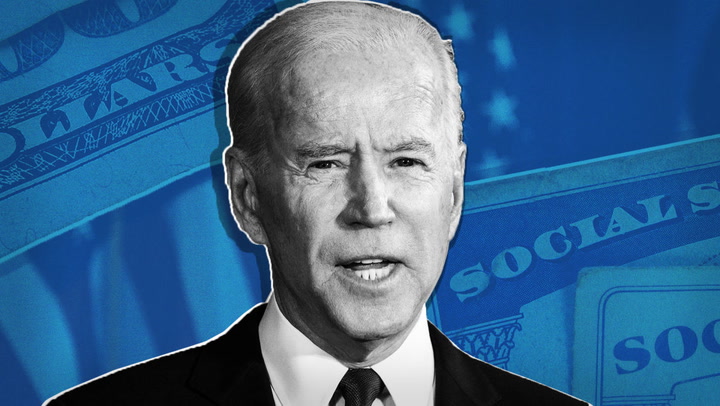President Biden's sweeping $2 trillion social and climate change legislation more widely known as Build Back Better Plan was recently passed by the House, and is considered one of the most consequential bills in recent decades. The Build Back Better Plan has already passed the Democrat controlled House of Representatives but faces an uphill road in the Senate where it is expected to get some amendments.
The bill puts a big focus on a social network and includes several provisions such as extra assistance for the unemployed to buy health insurance to various measures aimed at reducing high prescription drug prices to tax credits for purchasing an e-bike - one of the key provisions that is aimed at tackling climate change. Analysts estimate that the bill would help to strengthen the economy by adding more skilled workforce and creating more incentives to hire workers from diverse fields. The report published by Forbes said that Biden’s legislature presents “a transformational opportunity for American business, workers, and our country.”

“If passed, the investments made by the BBB framework will support small businesses, enable more Americans to join and remain in the labor force, and grow our economy from the bottom and middle,” according to the report. A Moody’s Analytics report estimates that the bill will add 1.5 million jobs per year on average across the decade and boost GDP by nearly $3 trillion. While Small Business for America’s Future (SBAF) survey of more than 1,000 small business owners found that 74 percent of them believe it is important that lawmakers continue bolstering the economy by supporting policies like the infrastructure and care economy investments. Biden’s proposed legislature package directly lifts up small businesses and communities across the country.
1) Access to capital
The BBB framework will make a $5 billion investment in the U.S. Small Business Administration (SBA) programs that support recovery and provide long-term solutions. The package allocates nearly $1.5 billion for a new direct loan program at SBA to make direct loans of up to $150,000 (for contractors and manufacturers, the limit is $1 million).
“Lending reports have shown that 7(a) loans under $150,000 have decreased by almost 53 percent over the past five years. This investment in SBA’s direct lending program will fill those gaps in our lending market and ensure underrepresented entrepreneurs have the capital they need to launch and grow their businesses,” said House Small Business Committee Chairwoman Nydia M. Velázquez [D-NY] in testimony to the House Rules Committee.
2) Reduction of healthcare costs and expansion of coverage
Lowering health insurance and prescription drug costs was the most cited policy priority for small business owners, according to the same SBAF survey.
In addition to the first ever movement to allow the government to negotiate prescription drug costs (limited, but a very big deal), the BBB framework meets this need by reducing premiums for more than 9 million Americans who buy insurance through the Affordable Care Act Marketplace by an average of $600 per person per year.
The package bridges the Medicaid coverage gap, which could help 4 million uninsured people obtain coverage. There is much more to do in this area, but these steps will provide greater stability for many small business owners and their employees. The legislation also raises taxes for high-income individuals, establishes a Medicare drug price negotiation program, and extends the child tax credit for an additional year while making it permanently refundable.
3) Fair Tax System
Three quarters of small business owners have said the tax code favors large corporations over small businesses and that small businesses are harmed when large businesses or corporations use loopholes to avoid paying taxes. The proposed package includes an agreement with 136 countries on a 15% global minimum tax that will prevent companies from receiving massive tax benefits from shifting profits and jobs abroad (The passage of the BBB framework will formally ratify this agreement).

4) Worker Training and Higher Education: $40 billion
The Biden-proposed legislation also aims to increase the value of Pell Grants and provide funding for grant programs and expand federal financial aid for eligible students with DACA, TPS and DED status. It also proposes investments in Historically Black Colleges and Universities (HBCU’s) as well as Hispanic - and other academic institutions serving minorities.
Climate and Clean Energy
The Biden administration has put a big focus on combating climate change and the proposed bill further reinforces this agenda. The legislation Includes investments and incentives for electric vehicles, including $100 million in grants for states to build up electric vehicle infrastructure, and offers funding for high speed rail, hazardous fuel reduction, forest management, coastal restoration, and soil conservation. It includes funding for the reduction of greenhouse emissions and offers funding for lead remediation grants and replacement of lead water lines.
Includes a provision to create a Civilian Climate Corps to take part in environmental and climate projects. Increases fees on the oil and gas industry and provides equipment upgrade incentives for fuel companies and distributors to support the sale and storage of biofuels.
Revenue Increases/Business Provisions
- 15% minimum tax on large corporations with reported income over $1 billion. U.S. companies with foreign parent companies would need to have at least $100 million in income.
- Attempts to discourage profit-shifting by multinational companies, and a 15% global intangible low-taxed income rate and a $15.8 foreign-derived intangible income rate.
- 1% tax on corporate stock buybacks by publicly traded U.S. corporations, including any subsidiary.
- Additional enforcement measures for large corporations and high-income earners at the Internal Revenue Service.
- An additional 5% tax on those earning more than $10 million a year and another 3% tax increase on those earning $25 million or more.
- Provisions to limit business losses for very wealthy individuals and adds a 3.8% Medicare tax for individuals earning more than $400,000 per year who did not pay the tax previously.
COMMENTS
Want to get in on the discussion? We'd love to hear from you. Drop a comment below and we'll get back to you as soon as we can!





